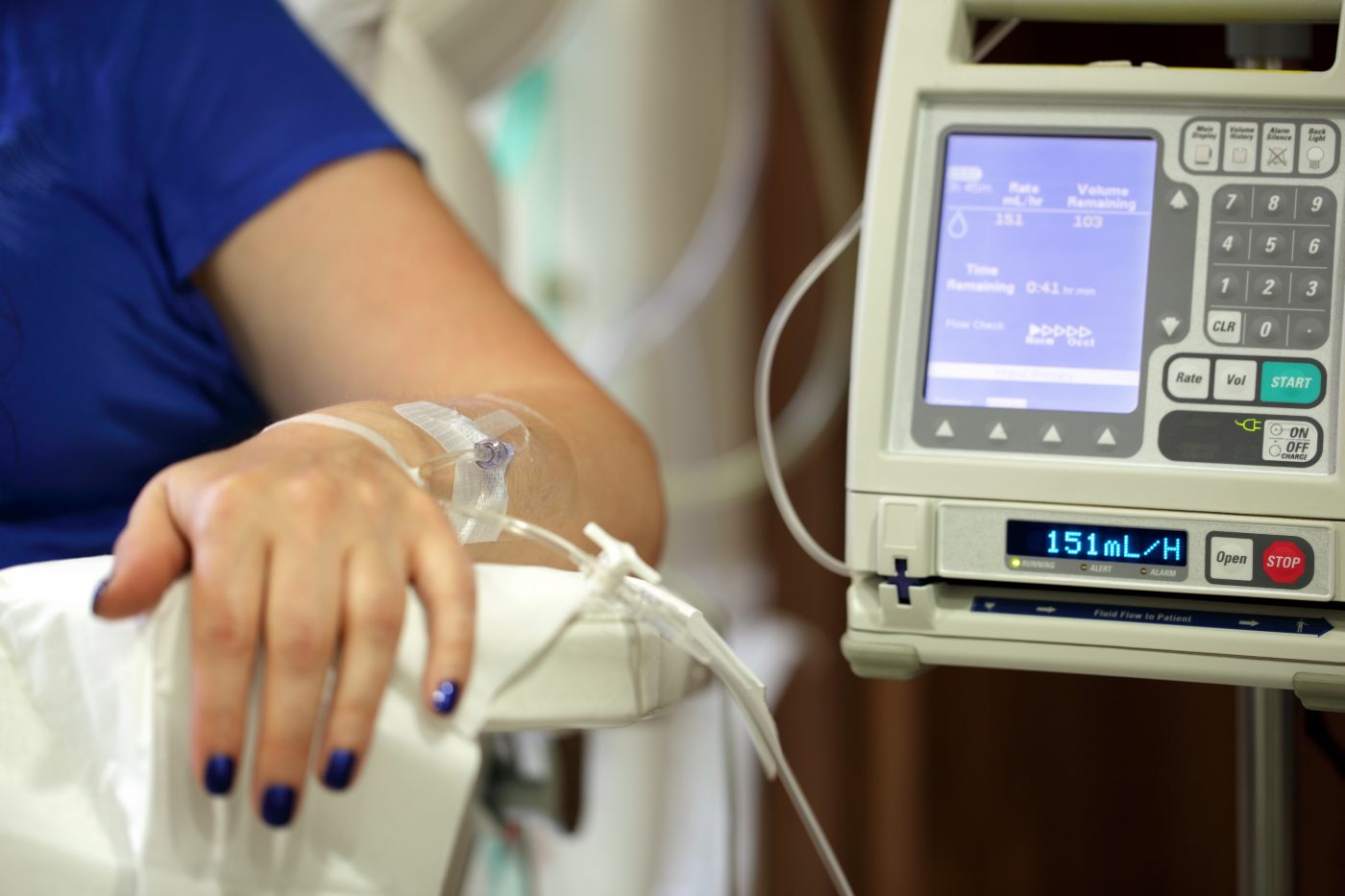Genentech, a member of the Roche Group focused on the treatment of serious or life-threatening medical conditions, recently announced new data on their Phase III GADOLIN trial (NCT01059630) on the benefits of Gazyva (obinutuzumab) plus bendamustine treatment followed by Gazyva alone for indolent non-Hodgkin’s lymphoma refractory to Rituxan® (rituximab)-based therapy, a standard first-line treatment option.
Non-Hodgkin’s lymphoma corresponds to approximately 85% of all lymphoma cases diagnosed. Lymphoma refers to a cancer that affects immune cells called lymphocytes, a type of white blood cell that defends the body from infections. Patients with lymphoma may experience swelling of the lymph nodes, fever, night sweats, itching, loss of appetite, sudden weight loss and fatigue. There are two types of non-Hodgkin’s lymphoma, indolent (slow-growing) and aggressive. It is estimated that in 2015, almost 72,000 individuals will be diagnosed with non-Hodgkin’s lymphoma in the United States, resulting in approximately 20,000 deaths.
Gazyva is an engineered monoclonal antibody able to attach to a protein on lymphocytes, called CD20, inducing direct cell death. Gazyva is thought to induce a greater recruitment activity of the body’s immune system in comparison to Rituxan.
The GADOLIN study was a Phase III multicenter, randomized trial to assess Gazyva plus bendamustine (an anti-cancer chemotherapeutic drug) treatment followed by Gazyva alone for up to two years, in comparison to treatment with bendamustine alone, in 413 patients with indolent non-Hodgkin’s lymphoma who were non-responsive to Rituxan-based therapy. The team found that combining Gazyva plus bendamustine could reduce disease burden and the risk of death by 45% in comparison to treatment with bendamustine alone. The study was interrupted before its final analysis since a high level of benefit was observed upon combination therapy. Treatment with Gazyva had no unexpected safety issues.
“Unfortunately, some people with indolent non-Hodgkin’s lymphoma have disease that is refractory to Rituxan-based therapy, a standard of care treatment. We’re excited by these data showing that Gazyva could help these people who have few treatment options remaining,” concluded the chief medical officer and head of Global Product Development Dr. Sandra Horning in the press release.
In an exclusive interview with BioNews, when questioned about the time it will take until Gazyva is sent for FDA approval and when it could be available to patients, Nancy Valente, M.D., Vice President, Global Hematology Development, Genentech explained “We’re planning to submit data from this pivotal study to the FDA, EMA and other health authorities around the world for approval consideration. We don’t have a date of when the potential approval would be yet, but will provide that when it is available. We know people with indolent NHL whose disease progresses during or following Rituxan-based therapy have limited treatment options, and we will work closely with health authorities to determine the most appropriate regulatory path forward based on the results of the GADOLIN study”.
“Gazyva is an engineered monoclonal antibody designed to attach to CD20, a protein found only on B-cells. It attacks targeted cells both directly and together with the body’s immune system. Gazyva is thought to have an increased ability to induce direct cell death and induces greater activity in how it recruits the body’s immune system to attack B-cells (antibody dependent cellular cytotoxicity; ADCC) when compared to our medicine Rituxan, the first therapeutic antibody ever approved in oncology,” Dr. Valente told BioNews.
The findings from the GADOLIN study will be presented at the 2015 American Society of Clinical Oncology (ASCO) Annual Meeting in Chicago, June 1 (Abstract #LBA8502) by Dr. Laurie Sehn from the British Columbia Cancer Agency/University of British Columbia, at the 13th International Conference on Malignant Lymphoma (ICML) in Switzerland, June 17 to 20, 2015.
The findings will also be submitted to the U.S. Food and Drug Administration (FDA), the European Medicines Agency and other health authorities worldwide for approval consideration.


